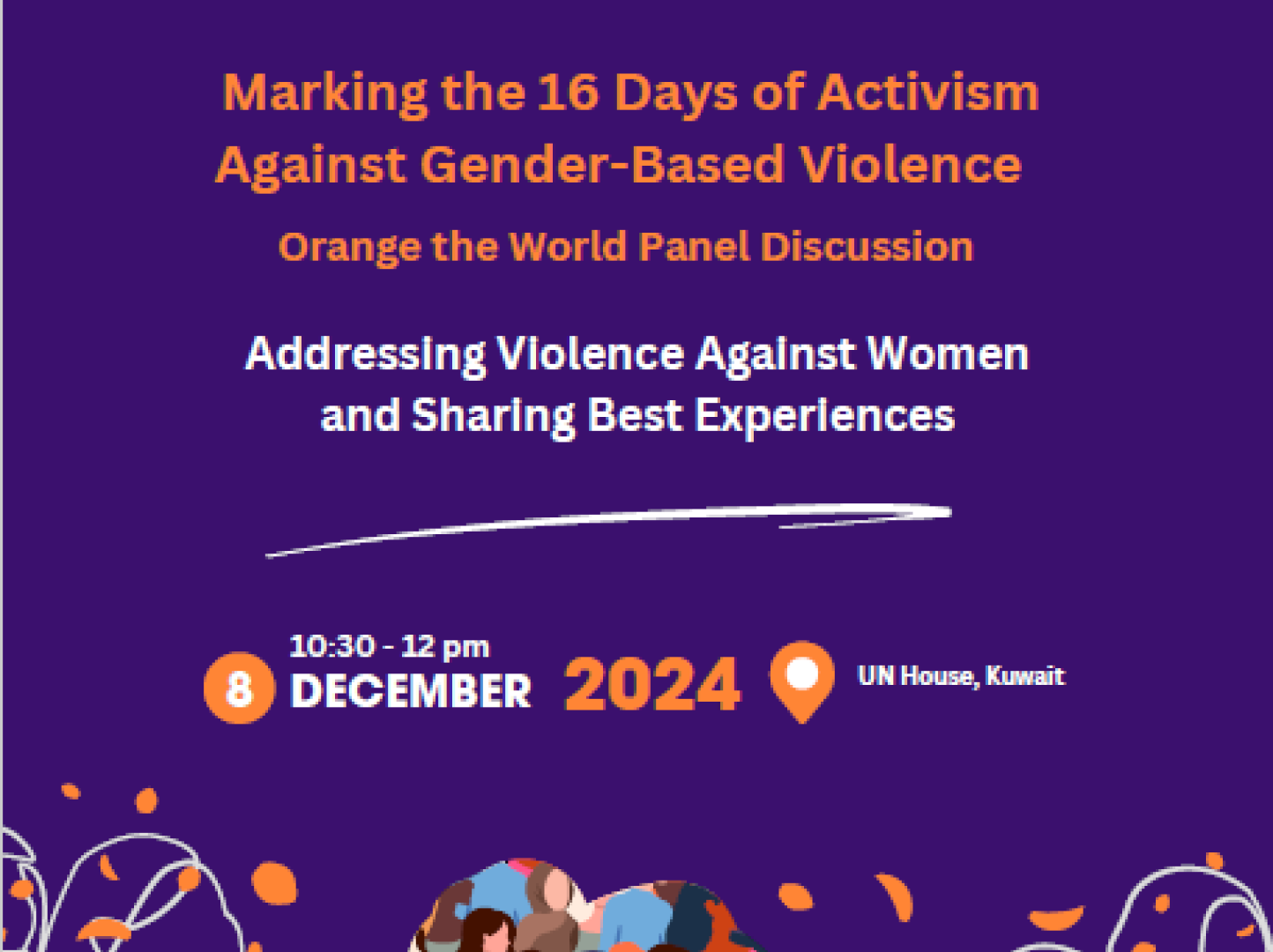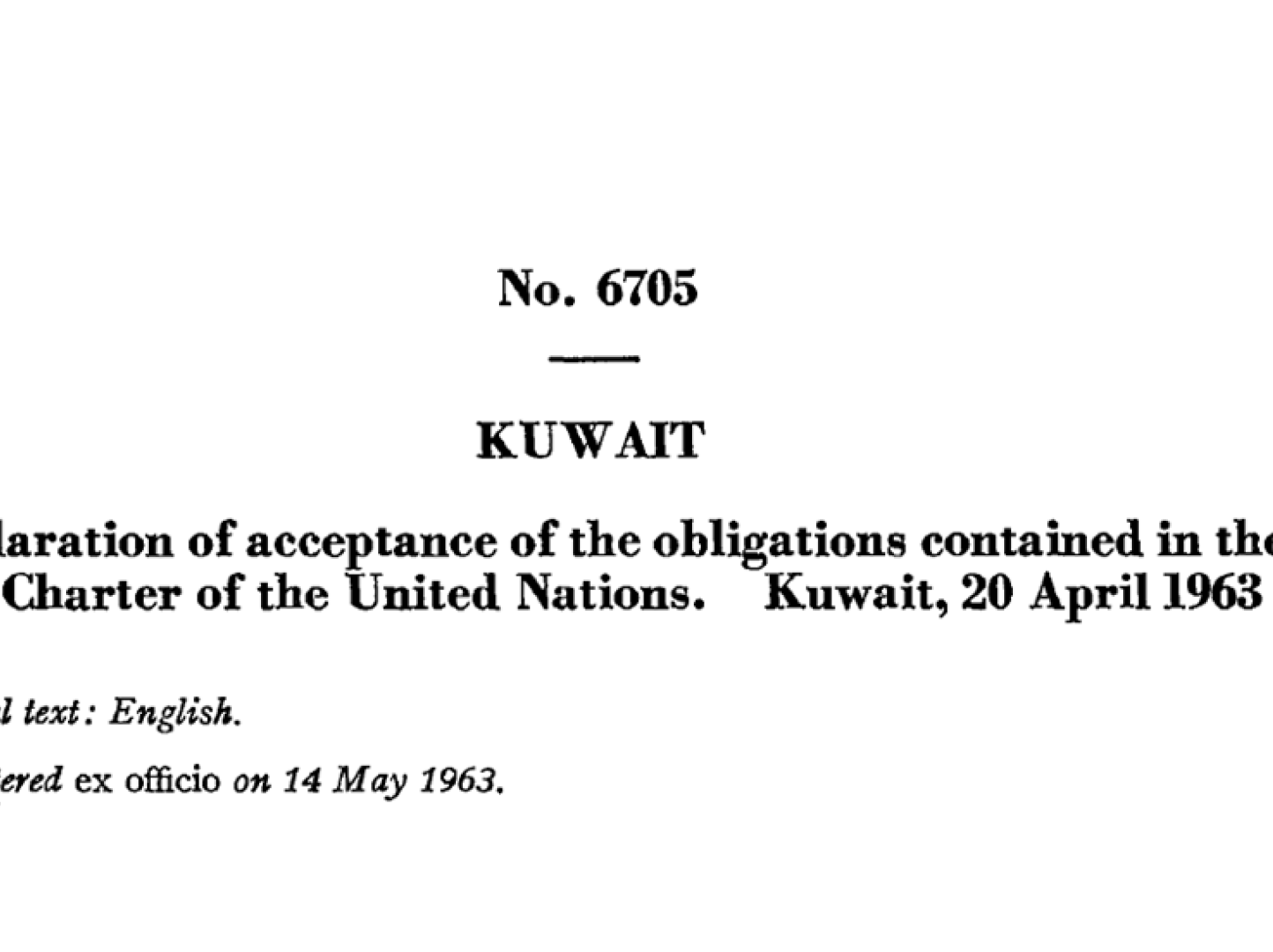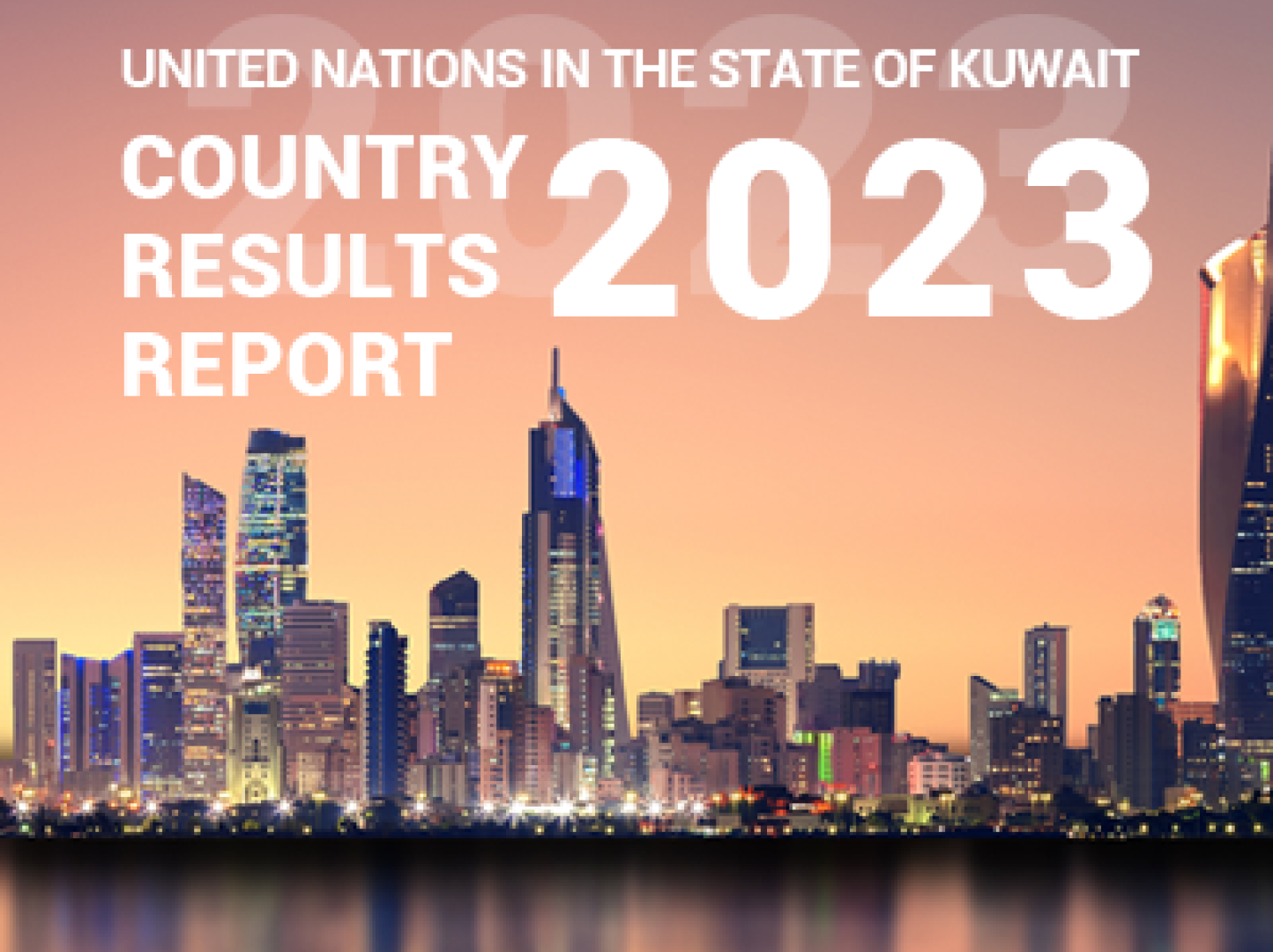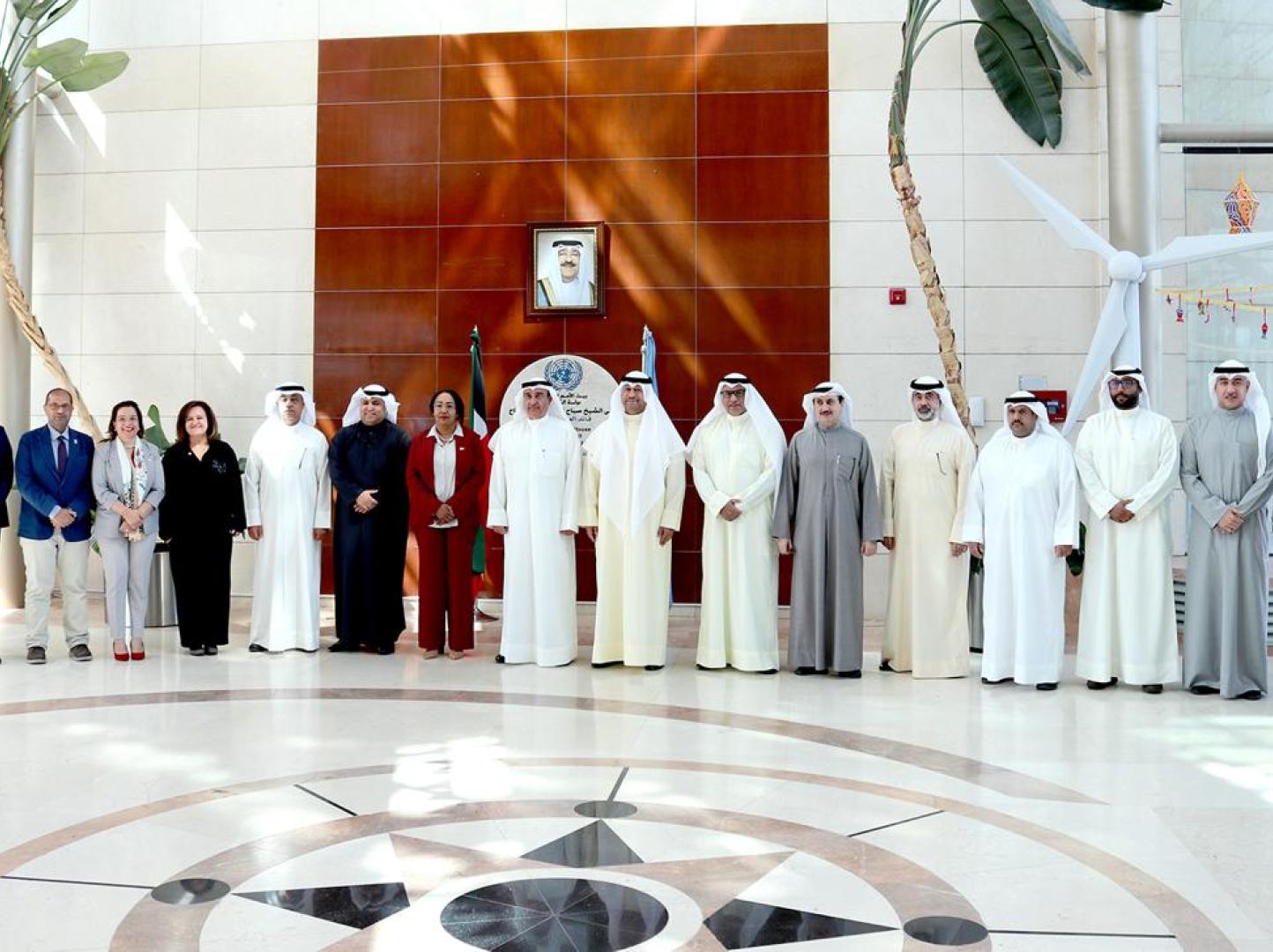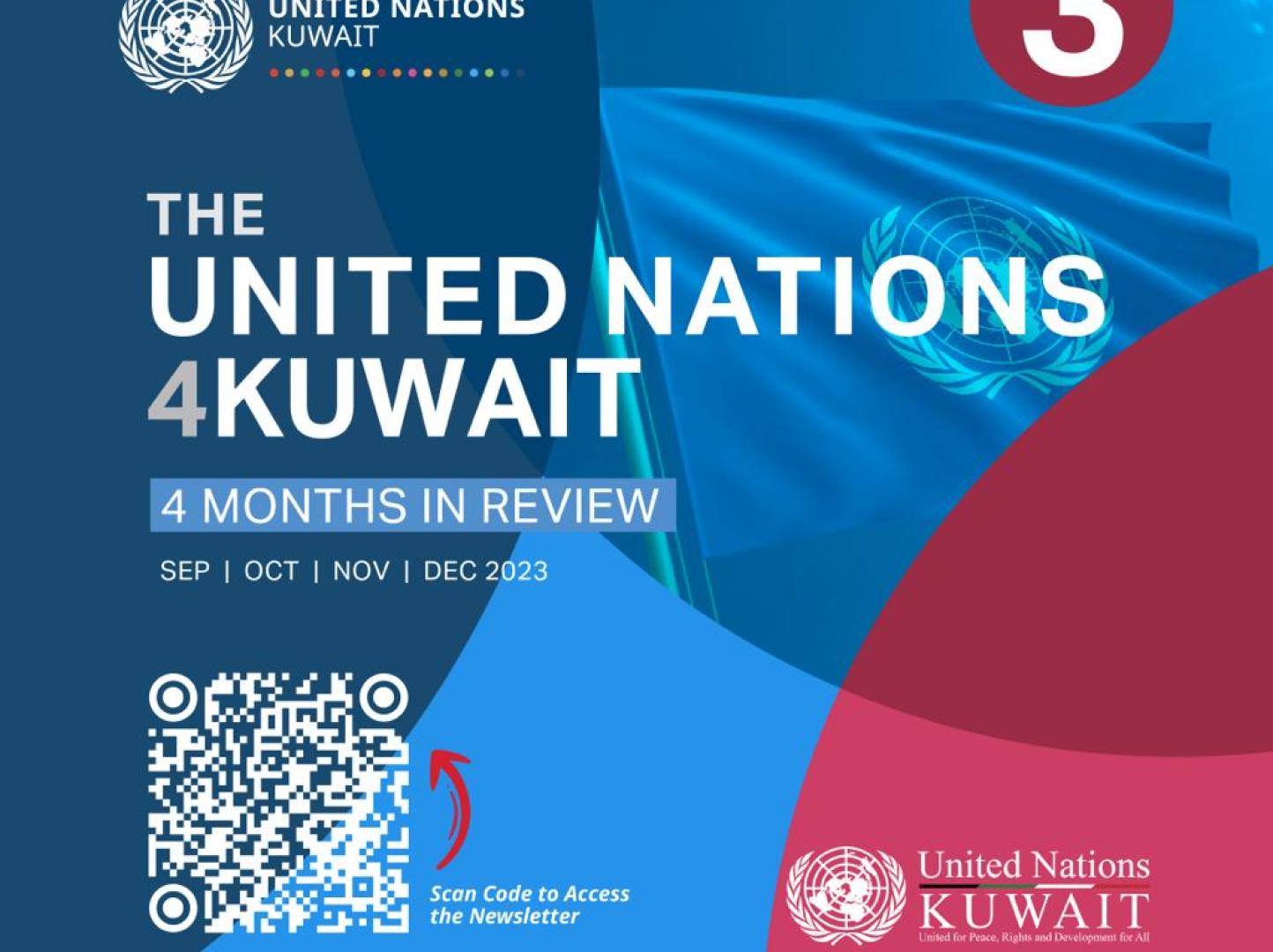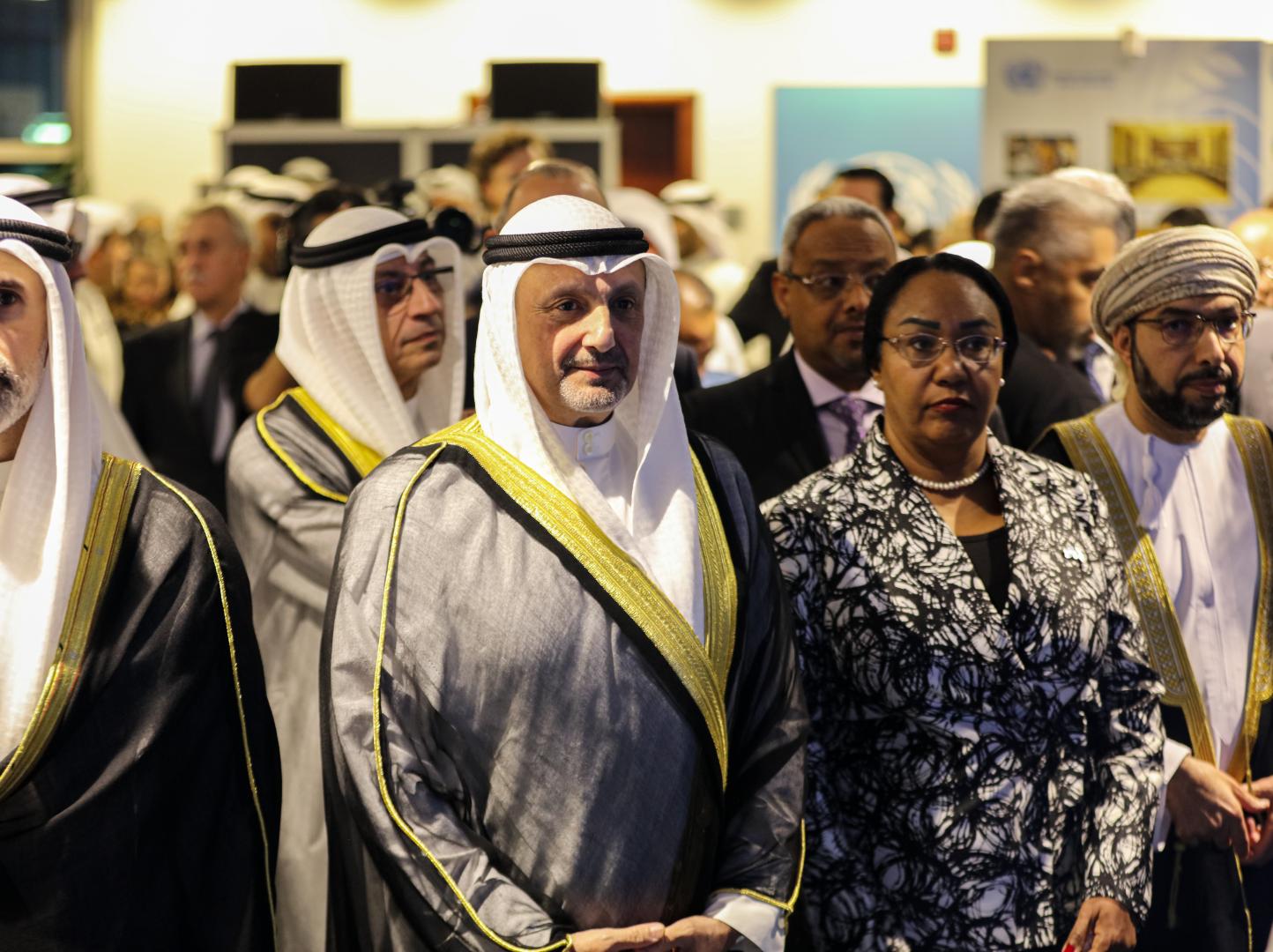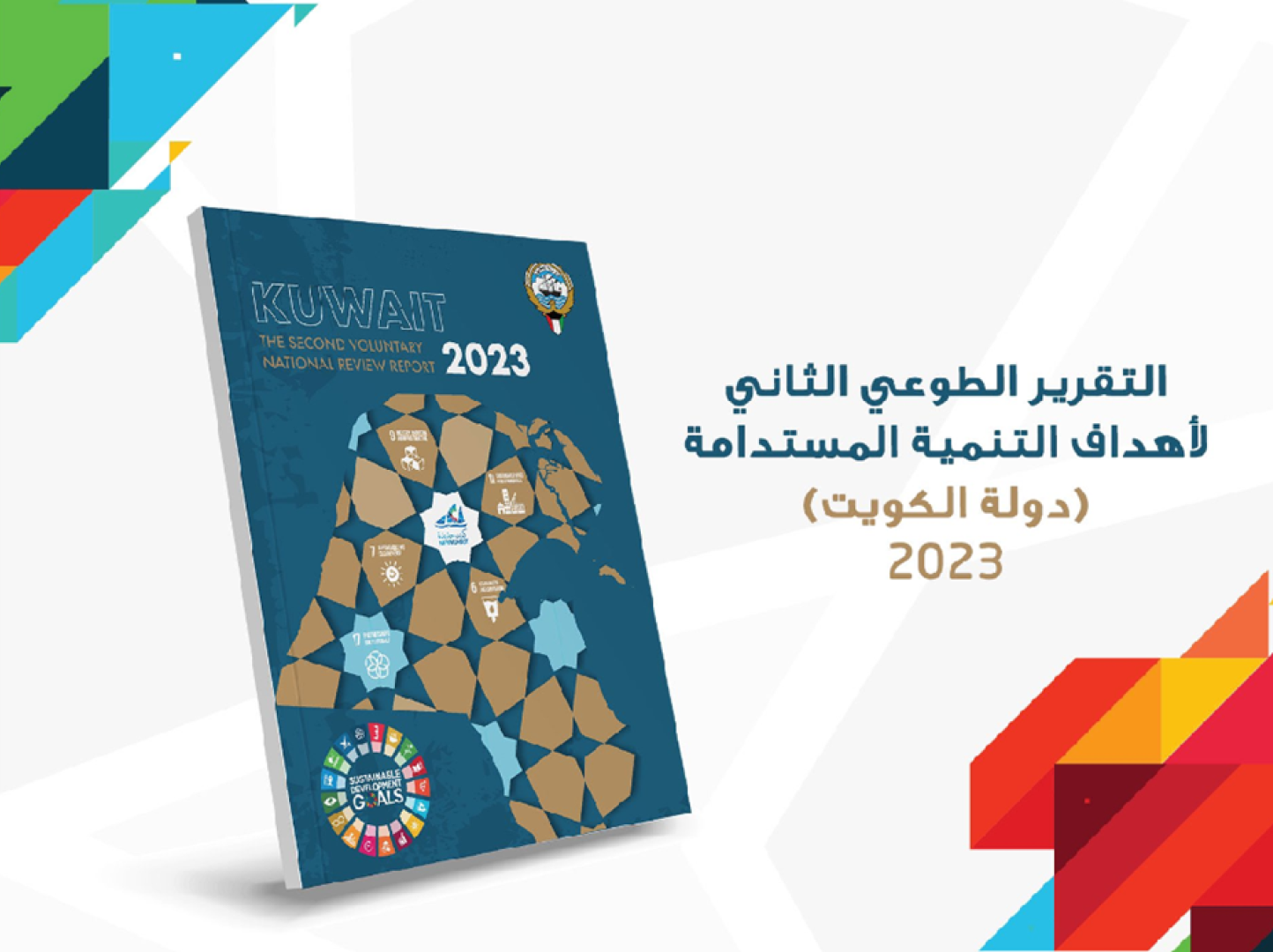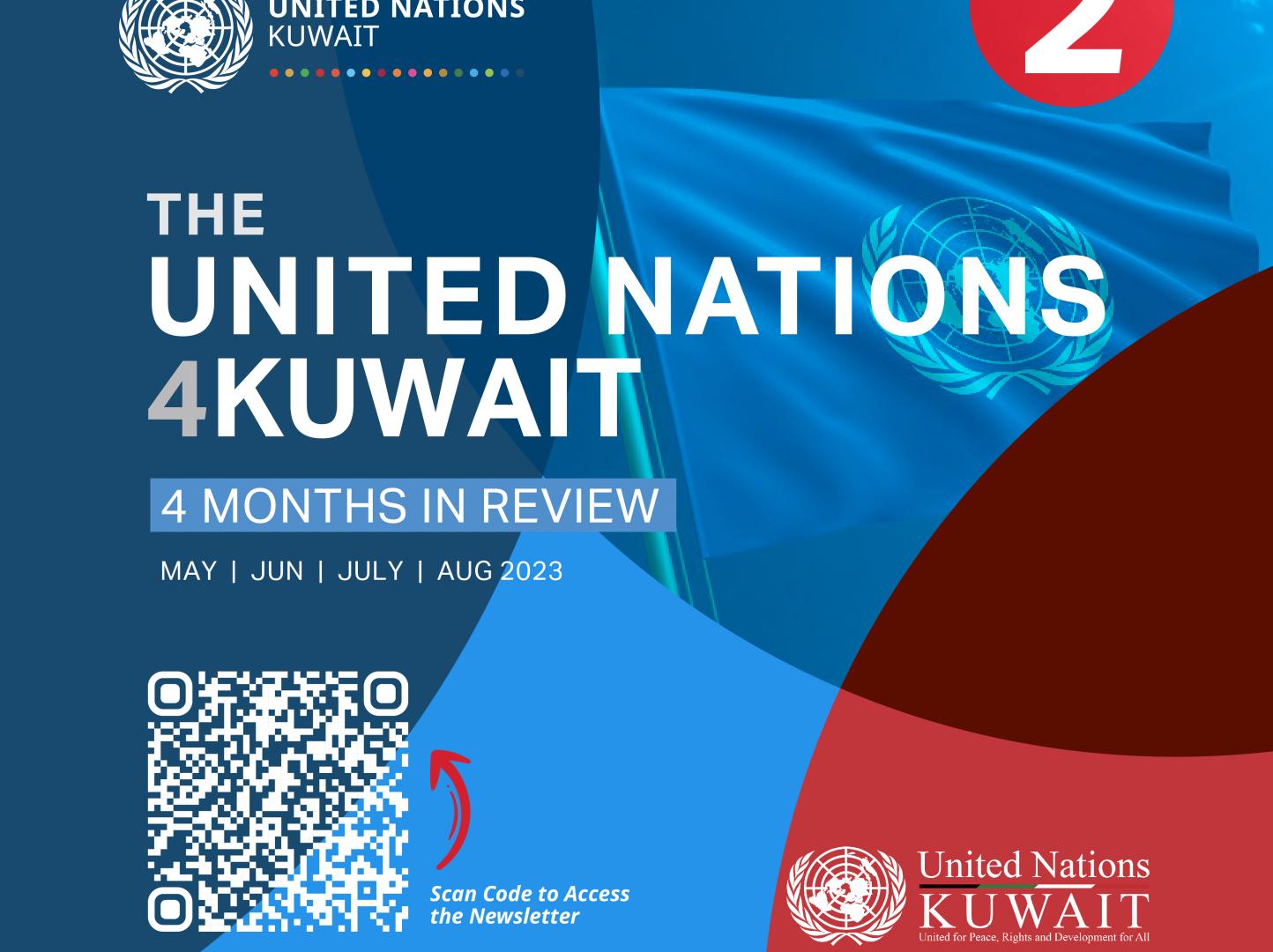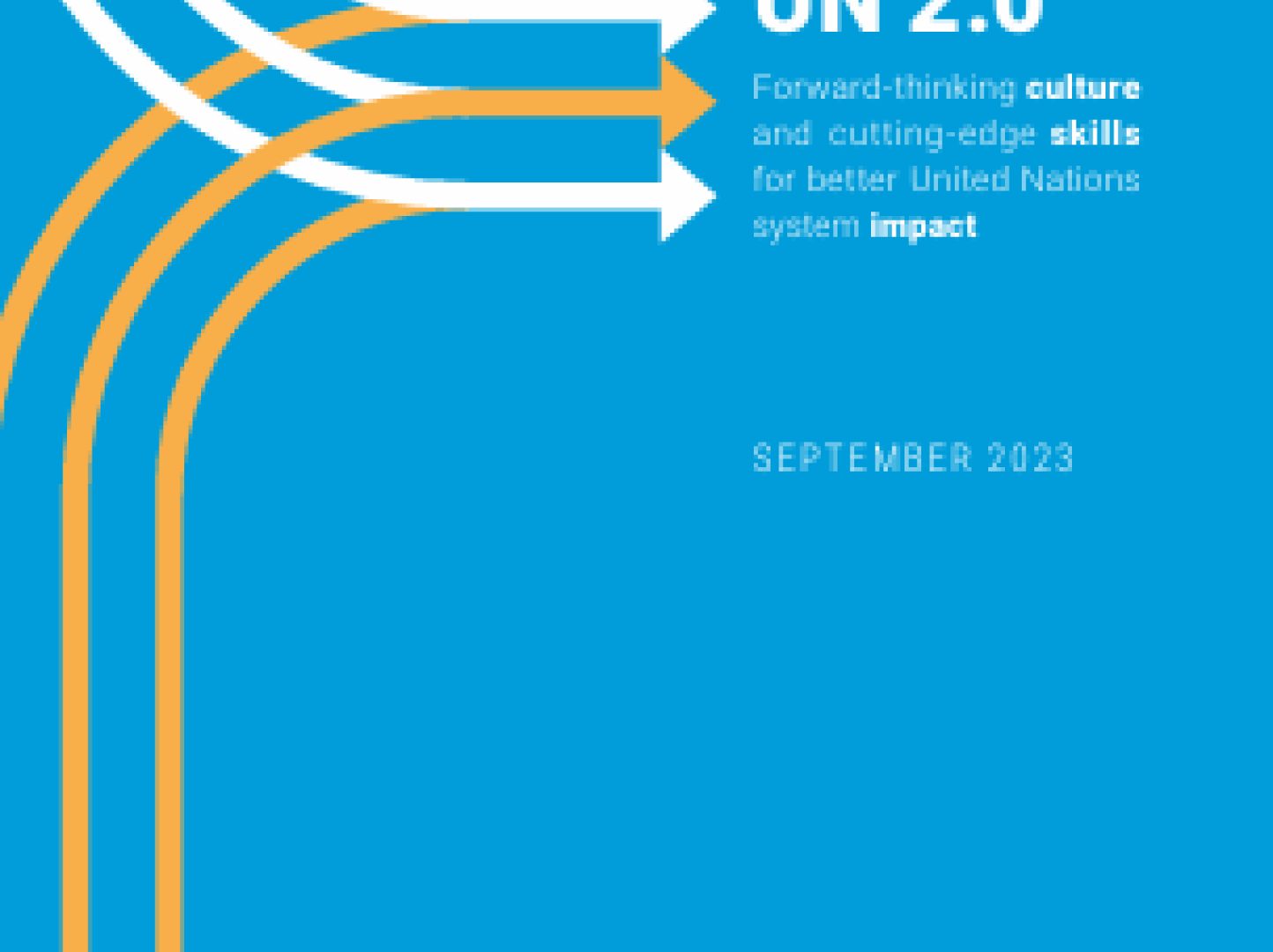Latest
Press Release
07 July 2025
Israeli settlers, supported by the army, forcibly displaced Palestinian communities from the Jordan Valley in the occupied West Bank
Learn more
Story
07 July 2025
UN chief ‘appalled’ by worsening Gaza crisis as civilians face displacement, aid blockades
Learn more
Story
03 July 2025
Gaza: Access to key water facility in Khan Younis disrupted, UN reports
Learn more
Latest
The Sustainable Development Goals in Palestine
The Sustainable Development Goals are a global call to action to end poverty, protect the earth’s environment and climate, and ensure that people everywhere can enjoy peace and prosperity. These are the goals the UN is working on in Kuwait:
Story
07 July 2025
UN chief ‘appalled’ by worsening Gaza crisis as civilians face displacement, aid blockades
Multiple attacks in recent days have killed and injured scores of Palestinians at sites hosting displaced people and others attempting to access essential supplies, according to a statement from UN Spokesperson Stéphane Dujarric on Thursday.“The Secretary-General strongly condemns the loss of civilian life,” Mr. Dujarric said.On just one day this week, nearly 30,000 people were forced to flee under new Israeli relocation orders, with no safe place to go and clearly inadequate supplies of shelter, food, medicine or water, he added.Critical systems shutting downWith no fuel having entered Gaza in over 17 weeks, the UN chief is also “gravely concerned that the last lifelines for survival are being cut off.”“Without an urgent influx of fuel, incubators will shut down, ambulances will be unable to reach the injured and sick, and water cannot be purified,” Mr. Dujarric said.“The delivery by the United Nations and partners of what little of our lifesaving humanitarian aid is left in Gaza will also grind to a halt.”The Secretary-General reiterated his call for safe and sustained humanitarian access so aid can reach people in desperate need.“The UN has a clear and proven plan, rooted in the humanitarian principles, to get vital assistance to civilians – safely and at scale, wherever they are,” Mr. Dujarric said.The Secretary-General reiterated his call for an immediate and permanent ceasefire and the unconditional release of all hostages held by Hamas and other groups. He reminded all parties that international humanitarian law must be upheld.Displacement continuesDisplacement remains relentless. On Wednesday, Israeli authorities issued a new evacuation order in parts of Gaza City, affecting some 40,000 people and including a displacement site, a medical point and one of the few neighbourhoods that had remained untouched by such orders since before the March ceasefire.Since that ceasefire collapsed, over 50 such orders have been issued, now covering 78 per cent of Gaza’s territory.“Add the Israeli-militarized zones and that percentage jumps to 85 – leaving just 15 per cent where civilians can actually stay,” Mr. Dujarric said, briefing reporters at the UN Headquarters, in New York.Those areas are overcrowded and severely lacking in services or proper infrastructure.“Imagine having just over two million people in Manhattan – which is actually slightly bigger – but instead of buildings, the area is strewn with the rubble of demolished and bombed-out structures, without infrastructure or basic support,” the UN Spokesperson said.“And in Gaza, these remaining areas are also fragmented and unsafe.”
1 of 5

Story
03 July 2025
Gaza: Access to key water facility in Khan Younis disrupted, UN reports
A key water reservoir serving Khan Younis in southern Gaza has become inaccessible following new Israeli displacement orders, sparking fears of a collapse in the city’s water distribution network and worsening already dire humanitarian conditions, the United Nations warned.According to the UN Office for the Coordination of Humanitarian Affairs (OCHA), Israeli authorities issued displacement orders overnight for two neighbourhoods in Khan Younis, where up to 80,000 people had been living.The Al Satar reservoir – a critical hub for distributing piped water from Israel – has become inaccessible as a result.Grave warnings“Any damage to the reservoir could lead to a collapse of the city’s main distribution of the water system, with grave humanitarian consequences,” UN spokesperson Stéphane Dujarric told reporters at a daily news briefing in New York.Al Satar's disruption comes as Gaza’s infrastructure buckles under relentless displacement, strained services and critical shortages of fuel and supplies.Approximately 85 per cent of Gaza’s territory is currently either under displacement orders or located within military zones – severely hampering people’s access to essential aid and the ability of humanitarians to reach those in need, OCHA reported.Displacement continuesSince the collapse of a temporary ceasefire in March, nearly 714,000 Palestinians have been displaced again, including 29,000 in the 24 hours between Sunday and Monday. Existing shelters are overwhelmed, and aid partners report deteriorating health conditions driven by insufficient water, sanitation and hygiene services.Health teams report that rates of acute watery diarrhoea have reached 39 per cent among patients receiving health consultations. Khan Younis and Gaza governorates are hardest hit, with densely overcrowded shelters and little access to clean water exacerbating the spread of disease.Adding to the crisis, no shelter materials have entered Gaza in over four months, despite the hundreds of thousands of newly displaced people. UN partners reported that in 97 per cent of surveyed sites, displaced families are sleeping in the open, exposed to heat, disease and trauma.Fuel shortagesMeanwhile, fuel shortages are jeopardising the humanitarian response. A shipment of diesel intended for northern Gaza was denied on Wednesday by Israeli authorities, just a day after a successful but limited delivery to Al Shifa Hospital in Gaza City.If the fuel crisis is not urgently addressed, Mr. Dujarric warned that relief efforts could grind to a halt.“If the fuel crisis isn’t addressed soon, humanitarian responders could be left without the systems and the tools that are necessary to operate safely, manage logistics and distribute humanitarian assistance,” he said.“This would obviously endanger aid workers and escalate an already dire humanitarian crisis.”
1 of 5
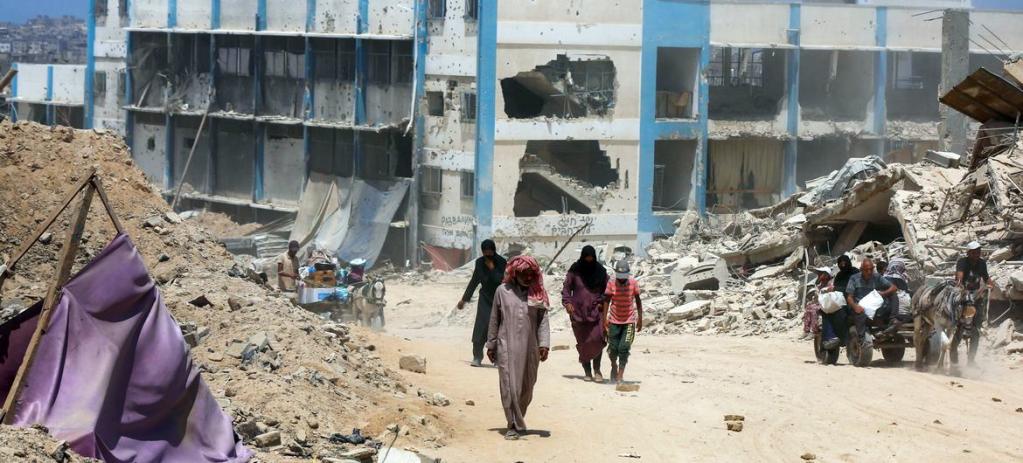
Story
02 July 2025
Gaza: Families deprived of the means for survival, humanitarians warn
The United Nations reported that humanitarian operations in Gaza are facing escalating strain, as ongoing fuel shortages, access restrictions and military activity continue to undermine aid delivery and essential services. “As humanitarian assistance and basic services dwindle, people in Gaza have been increasingly deprived of the means for their survival,” UN Spokesperson Stéphane Dujarric told reporters at the UN Headquarters in New York.It has been 17 weeks since any fuel has entered Gaza, according to Mr. Dujarric – a critical shortage that forced the Al-Shifa Medical Complex to suspend its kidney dialysis services and restrict its intensive care unit services to just a few hours per day.Other hospitals, including Al-Aqsa in Deir al-Balah, have also come under attack, with the World Health Organization (WHO) reporting a strike on a tent sheltering displaced civilians in its courtyard.Over the past 48 hours, five school buildings sheltering displaced families were also hit, reportedly causing deaths and injuries, while a new evacuation order issued on Sudan displaced 1,500 families from northern Gaza. Living in terrorOlga Cherevko, an official at the UN Office for the Coordination of Humanitarian Affairs (OCHA), described conditions for families in Gaza as “living in terror.”“The only thing that is on their minds right now is a ceasefire and peace at last,” she said. Ms. Cherevko called for Israel to open all border crossings and allow a steady and sufficient flow humanitarian aid.“The thing that needs to happen for us…to address the emergency on the ground, is to reopen additional crossings, to allow supplies to enter through multiple corridors and remove the constraints that are in place for us to deliver supplies to people in need,” she said. She warned that unless conditions change quickly, essential services will continue to shut down — and the broader humanitarian response could stall entirely.“If the situation doesn’t change very, very urgently, more such services will continue shutting down,” Ms. Cherevko said.“And if the situation doesn't change going forward, the entire humanitarian operation could grind to a halt.”
1 of 5
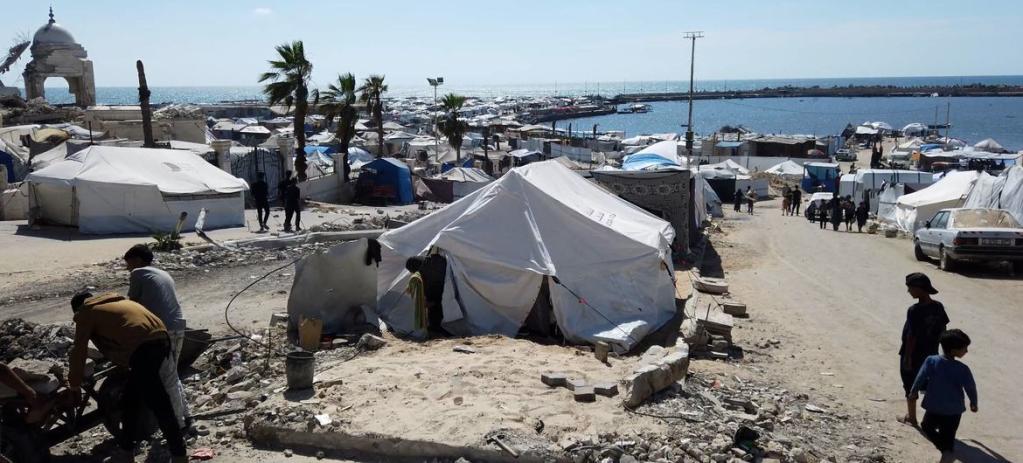
Story
01 July 2025
Gaza: ‘Unbearable’ suffering continues, UN official tells Security Council
The humanitarian crisis in Gaza is deepening at an alarming rate, a senior United Nations official warned, as Israeli military operations and attacks on civilians seeking aid continue to exact a devastating toll on lives and infrastructure.Briefing ambassadors in the Security Council, Assistant Secretary-General for the Middle East Khaled Khiari said more than 1,000 Palestinians had been killed since mid-June alone, many of them while seeking aid.Citing figures from the Gazan health authorities, he reported that the total number of Palestinian fatalities since 7 October 2023 had surpassed 56,500.“The level of suffering and brutality in Gaza is unbearable,” Mr. Khiari said. “The continued collective punishment of the Palestinian people is unjustifiable.”Killed trying to access aidMr. Khiari cited multiple incidents involving the Israel Defense Forces (IDF) opening fire near food distribution points.On 17 June, at least 50 people were killed and 200 injured in Khan Younis when an IDF tank opened fire on a crowd waiting for UN World Food Programme (WFP) aid trucks.Once again a week later, IDF troops reportedly opened fire near Gaza Humanitarian Foundation sites, this time killing 49 Palestinians and injuring 197 others.“We strongly condemn the loss of lives and injuries of Palestinians seeking aid in Gaza,” Mr. Khiari said. “We call for an immediate and independent investigation into these events and for perpetrators to be held accountable.”He emphasised that the UN “will not participate in any aid delivery modality that does not comply with the fundamental humanitarian principles of humanity, impartiality, independence, and neutrality,” a sentiment which other UN officials have repeatedly said as well.Strong condemnationMr. Khiari reiterated the UN’s strong condemnation of Hamas and other Palestinian armed groups for their attacks in Israel, which killed over 1,200 people and led to more than 250 being taken hostage. Fifty hostages, including one woman, remain in captivity.“Nothing can justify these acts of terror. We remain appalled that hostages may be subjected to ongoing ill-treatment and that the bodies of hostages continue to be withheld,” he said.At the same time, he also condemned “the widespread killing and injury of civilians in Gaza, including children and women, and the destruction of homes, schools, hospitals and mosques.”Rising violence in the West BankIn the occupied West Bank, Israeli raids and settler violence have escalated. Mr. Khiari reported that a 15-year-old boy and an elderly woman were killed in separate incidents on 25 June. Armed settlers also killed several Palestinians during attacks in Surif and Kafr Malik.“The escalating violence in the occupied West Bank is alarming,” Khiari said, warning that military operations and settler expansion are leading to fatalities, displacement and destruction.Iran-Israel ceasefire brings hope to the regionMr. Khiari concluded his briefing with comments on the wider Middle East region, particularly the recent flare-up between Israel and Iran.He welcomed the 24 June ceasefire agreement between the two countries, announced by US President Donald Trump, and credited US and Qatari mediation.“We hope that this ceasefire can be replicated in the other conflicts in the region – nowhere is this more needed than in Gaza,” he said.
1 of 5
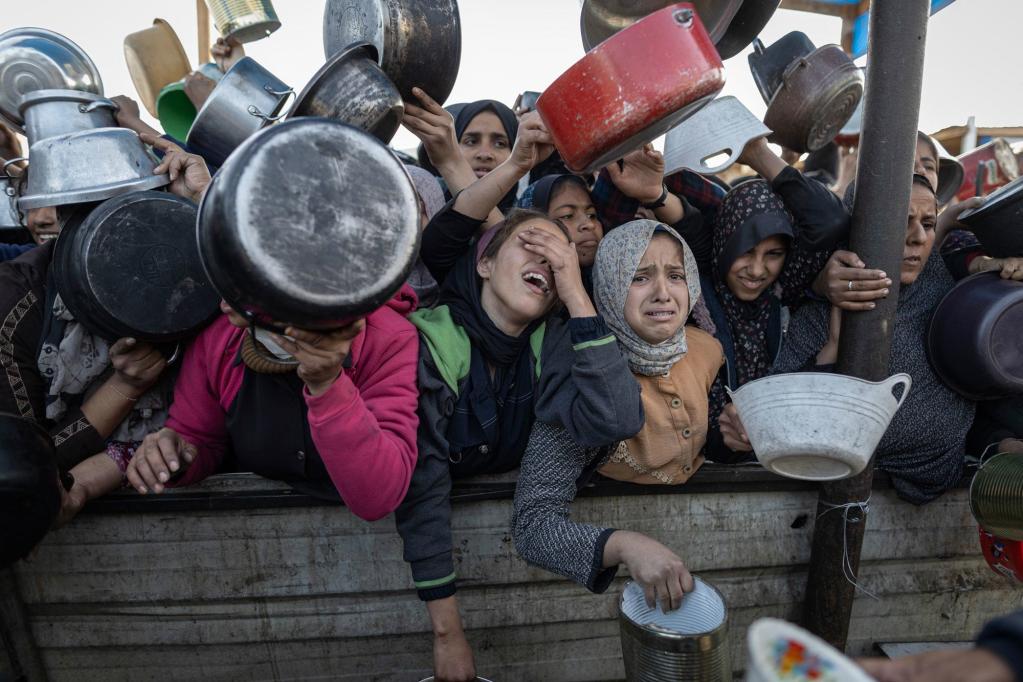
Story
30 June 2025
Guterres calls for immediate Gaza ceasefire as humanitarian crisis reaches ‘horrific proportions’
UN Secretary-General António Guterres reiterated his call for an immediate ceasefire in Gaza, warning that the humanitarian crisis has reached “horrific proportions” and that the world must not let the suffering of Palestinians be overshadowed by other regional conflicts.Speaking to reporters at UN Headquarters ahead of his departure to Spain for the International Conference on Financing for Development, the Secretary-General said that while the Israel-Iran conflict had dominated recent headlines, the plight of civilians in Gaza remained urgent and dire.“Families have been displaced again and again – and are now confined to less than one-fifth of Gaza’s land,” he said.“Even these shrinking spaces are under threat. Bombs are falling – on tents, on families, on those with nowhere left to run.”Search for food must never be a death sentenceMr. Guterres described the situation as the most severe since the onset of the war, citing acute shortages of food, fuel, medicine and shelter.“The search for food must never be a death sentence,” he said, highlighting the danger faced by Palestinians simply trying to survive.He has repeatedly called for three urgent steps: an immediate ceasefire, the unconditional release of all hostages, and full, unimpeded humanitarian access.On Friday, he again pressed for these demands, emphasising that aid workers are starving, hospitals are rationing life-saving supplies and civilians are trapped in unsafe zones.Surge in aid urgently needed“What’s needed now is a surge – the trickle must become an ocean,” he said.The UN chief stressed that Israel, as the occupying power, is legally obliged to facilitate humanitarian relief.“To those in power, I say: enable our operations as international humanitarian law demands. To those with influence, I say: use it,” he added.Earlier this week, a small convoy of UN medical supplies entered Gaza for the first time in months, Mr. Guterres noted, adding that it only underscored the overwhelming scale of the need.He also also cautioned that any aid delivery method must ensure civilian safety, stressing that “operations which place desperate people in or near militarized areas are inherently unsafe.”“We have the solution – a detailed plan grounded in the humanitarian principles of humanity, impartiality, neutrality, and independence,” he said.“It worked during the last ceasefire. So it must be allowed to work again.”Two-State solution criticalMr. Guterres concluded with a broader political appeal:“The only sustainable path to re-establishing hope is by paving the way to the two-State solution. Diplomacy and human dignity for all must prevail.”
1 of 5
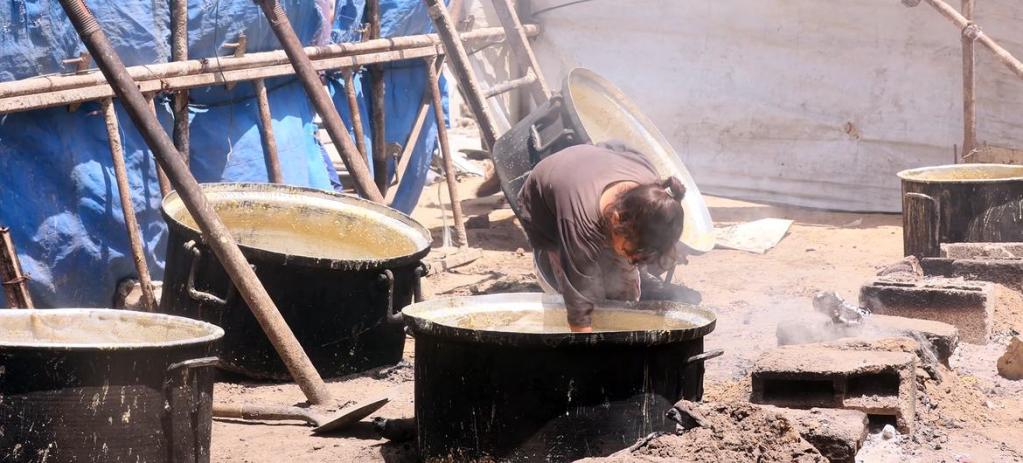
Story
27 June 2025
UN rights office sounds the alarm over forced displacement in the West Bank
Israeli authorities have stepped up measures to transfer large numbers of people from long-standing Palestinian towns and communities, according to OHCHR’s office in the Occupied Palestinian Territory.On 18 June, the High Planning Council in the Israeli Civil Administration issued a directive to reject all building and planning permits submitted by Palestinians in Masafer Yatta, South Hebron Hills, in the area referred by the Israeli authorities as Firing Zone 918.The decision was based on the grounds that the Israeli army needs the area for “military training,” the rights office said.Demolitions on the riseIn recent months, Israel has dramatically ramped up home demolitions, as well as the arbitrary arrest and ill-treatment of Palestinians and human rights defenders. This is happening alongside intensifying movement restrictions in and around Masafer Yatta, to force Palestinians out, the office noted.At the same time, Israeli settlers from nearby outposts have carried out daily attacks and harassment of Palestinians, including older people, women and children, to force them to leave.“The recent directive by the Israeli Civil Administration effectively paves the way for the Israeli army to demolish existing structures in the area and expel the approximately 1,200 Palestinians, who have been living there for decades,” OHCHR said.“This would amount to forcible transfer, which is a war crime. It could also amount to a crime against humanity if committed as part of a widespread or systematic attack directed against any civilian population, with knowledge of the attack.”Some 6,463 Palestinians have been forcibly displaced following the demolition of their homes by Israel between 7 October 2023 and 31 May 2025, according to the UN humanitarian affairs office, OCHA,This figure does not include the approximately 40,000 Palestinians displaced from three refugee camps in Jenin and Tulkarem as a result of intensive Israeli operations in the northern West Bank since January.During the same period, over 2,200 Palestinians were forcibly displaced by settler attacks and access restrictions.More communities at riskOHCHR added that countless other Palestinian communities face the same fate of forced displacement. It said that on 10 June, the Jerusalem municipality reportedly issued demolition notices for the entire village of An Nu’man, home to 150 people. The village, which is located near Bethlehem, was cut off from the rest of the West Bank by the construction of the separation wall and incorporated into Israel’s unilaterally declared boundaries of the Jerusalem municipality. Most Palestinians were not provided with Jerusalem identification cards, effectively rendering them unable to access services in either East Jerusalem or the rest of the West Bank. “These demolition notices appear to be another step by Israel to compound the coercive environment and forcibly transfer Palestinians from the village and consolidate the annexation of this land,” the office said.Evictions in East JerusalemMeanwhile, Palestinians in occupied East Jerusalem also face the ongoing threat of forced eviction from their homes and lands. OHCHR said that on 16 and 22 June, the Israeli Supreme Court endorsed the eviction of five Palestinian families, 37 people, from their homes in the Batn El Hawa neighbourhood of Silwan based on discriminatory laws that permit Jewish individuals to reclaim property lost in the 1948 war, while denying Palestinians the same rights. Additionally, the Israel Land Authority issued eviction notices on 11 June for residencies in Umm Tuba. The 150 Palestinians affected were informed that the land was registered to the Jewish National Fund under the “settlement of land title”. “These evictions form part of a concerted campaign by the Israeli State and settler organisations, which target Palestinian neighbourhoods to seize Palestinian homes and expand Jewish settlements,” OHCHR said.The office stressed that these acts violate international law, which prohibits the confiscation of private property in occupied territory, as highlighted by the advisory opinion of the International Court of Justice (ICJ) last July.
1 of 5
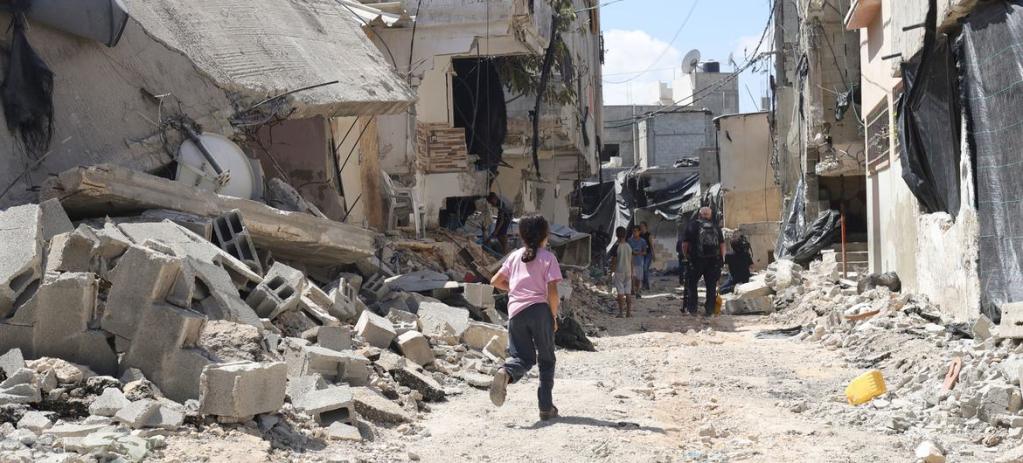
Story
26 June 2025
‘Fuel for Gaza is a matter of life and death,’ UN warns
“Israeli authorities continue to restrict the delivery of fuel into and throughout the Gaza Strip, effectively choking off life-saving services for deprived and starving people,” UN Spokesperson Stéphane Dujarric said during his regular press briefing in New York.Conditions in the enclave remain bleak, as Israeli operations continue to have a devastating impact on civilians, with reports of the killing and injury of scores of people, many of whom were just seeking aid.Pregnant women and babies at riskDue to the fuel situation, the UN Population Fund (UNFPA) warned that 80 per cent of critical care units, including those used for childbirth, risk shutting down – at a time when 130 women are giving birth every day. “As UNFPA stressed, fuel for Gaza is a matter of life and death,” said Mr. Dujarric.He added that community kitchens were able to prepare more than 200,000 meals every day this week. However, this represents an 80 per cent reduction compared with the more than one million meals distributed daily at the end of April, calling it “basically a trickle offered to people on the brink of famine.”In the absence of fuel, cooking gas and electricity, people have resorted to burning plastic waste. “When they do so in makeshift tents, you can imagine what happens with the poor ventilation and the tremendous risks that that poses,” he told journalists. Allow in more aidFurthermore, the UN relief coordination office, OCHA, also reminds that to meaningfully address the massive deprivation in Gaza, the Israeli authorities must allow in higher volumes of supplies and more varied types of food, as well as cooking gas, fuel and shelter items.Mr. Dujarric stressed that to facilitate the orderly distribution of aid, supplies must be channelled daily through multiple crossings and land routes simultaneously. This would ensure people that the flow of essential support is steady, sufficient and reliable. He said the UN and partners attempted to coordinate 15 humanitarian movements inside Gaza on Tuesday but only three were fully facilitated by the Israeli authorities, while seven were denied outright.Four missions were initially approved but then halted on the ground, although one was ultimately accomplished on Wednesday and another was cancelled by the organizers.
1 of 5
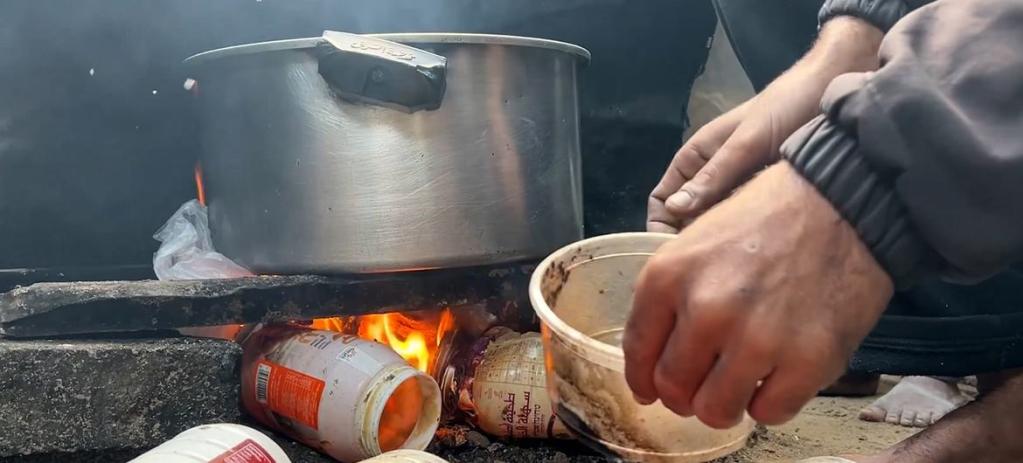
Story
25 June 2025
Gaza: Over 400 Palestinians killed around private aid hubs, UN rights office says
At least 410 Palestinians have been killed by the Israeli military while trying to fetch from controversial new aid hubs in Gaza – a likely war crime – the UN human rights office, OHCHR, said on Tuesday.The alert comes nearly a month since the Israeli and US-backed Gaza Humanitarian Foundation (GHF) started operating on 27 May in select hubs, bypassing the UN and other established NGOs.Its food distribution points have been associated frequently with confusion and shooting as desperate and hungry Gazans rush to fetch supplies, said UN human rights office spokesperson Thameen Al-Keetan.“Israel’s militarized humanitarian assistance mechanism is in contradiction with international standards on aid distribution,” he insisted. “The weaponization of food for civilians, in addition to restricting or preventing their access to life-sustaining services, constitutes a war crime and, under certain circumstances, may constitute elements of other crimes under international law.”In its latest update on the emergency, the UN aid coordination office, OCHA, reported that “scores of people of all ages are being killed and injured every day” in the shattered enclave.“Humanitarian operations of sufficient scale are not facilitated, leaving unaddressed the critical needs of those who have so far survived,” it said. Shelled or shot In Geneva, meanwhile, OHCHR’s Mr. Al-Keetan explained that private aid hub victims were either “shelled or shot” by the Israel Defense Forces. They have endangered civilians and contributed to the “catastrophic humanitarian situation in Gaza”, he maintained.At least 93 people have also been reportedly killed by the Israeli army while attempting to approach the few remaining aid convoys of the UN and other aid partners still operating in Gaza.In a previous alert, the UN human rights office has condemned the possible summary execution of Palestinian staff associated with the Gaza Humanitarian Foundation by armed men allegedly affiliated with Hamas.“These killings must end immediately, and those responsible held to account,” the UN office said in a statement.Most vulnerable miss outThe OHCHR spokesperson noted that women and children, along with older people and those with disabilities continue to face “multiple challenges” accessing food in Gaza today.Looting of aid convoys is now commonplace in Gaza after more than 20 months of daily Israeli bombardment as a result of a near-total blockade on humanitarian supplies including food, fuel and medicine.The result is that Gaza’s most vulnerable individuals are unable to access any of this diverted aid, the UN human rights office told UN News.To date, at least 3,000 Palestinians have been injured in incidents associated with the non-UN aid hubs and looting.“Desperate, hungry people in Gaza continue to face the inhumane choice of either starving to death or risk being killed while trying to get food,” the UN human rights office explained.Ongoing aid obstaclesAlthough the UN and other aid providers still function in Gaza, they are reliant on the Israeli authorities to facilitate their missions. On Saturday and Sunday, only eight out of 16 requests for humanitarian operations were approved, aid teams reported.“Half of [the missions] were denied outright, hindering the tracking of water and fuel, the provision of nutrition services and the retrieval of the bodies,” said Alessandra Vellucci, Director of the Information Service at UN Geneva.Her comments followed a warning from the UN’s top aid official in Gaza on Sunday who described dire scenes and “carnage”.“It is weaponized hunger. It is forced displacement. It’s a death sentence for people just trying to survive. All combined, it appears to be the erasure of Palestinian life from Gaza,” said OCHA’s Head of Office in the Occupied Palestinian Territory, Jonathan Whittall.Telecommunications have now been restored across Gaza after damaged fibre cables were repaired at the weekend.“For the first time in days, humanitarian teams have had more than 24 hours of relatively stable connectivity – something that is essential to coordinate emergency relief and save lives,” OCHA said in Monday evening’s update.But without urgent fuel deliveries, telecommunications “will go down again very soon”, the UN aid wing warned.Fuel crisis“Fuel is also needed to keep emergency rooms running, power ambulances, and operate water desalination and pumping stations,” it explained.“Right now, teams on the ground are rationing what little fuel remains and working to retrieve stocks stored inside Gaza, in areas that are hard to reach.”Access to Nasser Medical Complex is also limited because there is not enough fuel for transportation “and health workers and patients fear for their safety”, OCHA continued.“Last week, in Khan Younis, in-patient admissions at field hospitals increased threefold, largely due to access challenges at Nasser, which also saw an influx of trauma patients and has been overwhelmed since.”Most of Gaza remains under displacement orders issued by the Israeli military, including another one on Monday for two neighbourhoods in Khan Younis city, reportedly following Palestinian rocket fire from these areas."These neighbourhoods were already subject to earlier displacement orders and include two hospitals – Al Amal and Nasser," OCHA said. "While Israeli authorities have clarified that the hospitals are not required to evacuate, OCHA says the designation is nonetheless hindering access to those critical facilities for both patients and medical staff."
1 of 5
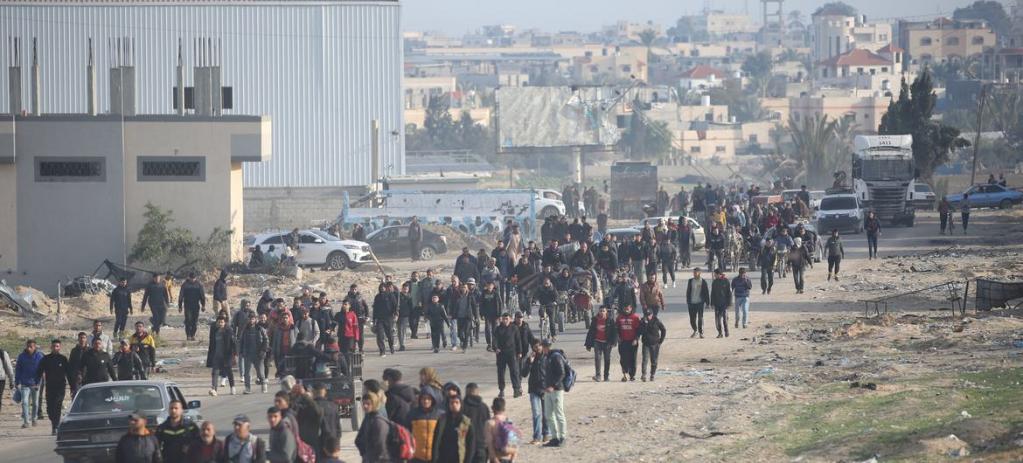
Story
23 June 2025
Gaza: UN warns of ‘weaponised hunger’ and growing death toll amid food chaos
The top UN humanitarian official in the Occupied Palestinian Territory has issued a stark warning over the deepening crisis in Gaza, where civilians are being killed daily while trying to access food, water and medical care.Speaking to journalists in Deir al Balah on Saturday, Jonathan Whittall, who heads the UN humanitarian coordination office (OCHA) in Gaza and the West Bank, said: “The attempt to survive is being met with a death sentence.”Since Israel eased its total blockade last month, more than 400 people are reported to have died trying to reach food distribution points.“We see a chilling pattern of Israeli forces opening fire on crowds gathering to get food,” Mr. Whittall said, noting many of these sites are in militarised zones. Others have been killed along access routes or while protecting aid convoys.“It shouldn’t be this way,” he said. “There shouldn’t be a death toll associated with accessing the essentials for life.”Empty warehouses, overwhelmed hospitalsConditions across Gaza continue to deteriorate. Water wells have run dry or are located in dangerous areas, sanitation systems have collapsed, and disease is spreading rapidly.“Our warehouses stand empty,” Mr. Whittall said. “Displaced families flee with nothing – and we have nothing to give them.”Partially functioning hospitals are overwhelmed by near-daily mass casualty events. Some have been directly hit, while others are choked by fuel shortages and forced evacuation orders.UNICEF reports more than 110 children are being treated for malnutrition every day. Mr. Whittall said humanitarian agencies are capable of reaching every family in the shattered enclave but are being systematically blocked. “We have a plan...but we are prevented from doing so at every turn.”Death sentenceHe described the situation as “weaponised hunger”, “forced displacement”, and “a death sentence for people just trying to survive”.“This is carnage,” Mr. Whittall said. “It appears to be the erasure of Palestinian life from Gaza.”He urged the international community to act: “We need a lasting ceasefire, accountability, and real pressure to stop this. This is the bare minimum.”
1 of 5

Story
19 June 2025
UN rights office ‘horrified’ by deadly violence at Gaza food distribution sites
As the pall of starvation hangs over Gaza, UN agencies have sounded the alarm over deadly violence at food distribution points, where over 400 Palestinians have reportedly been killed in recent weeks while trying to access desperately needed humanitarian aid.The UN human rights office (OHCHR) in the Occupied Palestinian Territory on Wednesday called on the Israeli military to cease the use of lethal force near aid convoys and food distribution sites.It cited “repeated incidents” of Palestinians being shot or shelled while seeking food, warning that such attacks could constitute war crimes under international law.“We are horrified at the repeated incidents, continuously reported in recent days across Gaza, and we call for an immediate end to these senseless killings,” the office said in a statement.Hundreds killedSince 27 May, when the Gaza Humanitarian Foundation (GHF), an initiative backed by Israel and the United States began food distribution in southern Gaza – bypassing the established UN-led system – hundreds have been killed and many more wounded near four distribution points or while waiting to pick up aid.In one of the deadliest recent incidents, Israeli military reportedly shelled a crowd waiting for UN food trucks in southern Gaza on 17 June, killing at least 51 people and injuring some 200 others, according to Gazan health authorities.A day earlier, three Palestinians were reportedly killed and several injured in a similar incident in western Beit Lahiya.“There is no information to suggest that the people killed or injured were involved in hostilities or posed any threat to the Israeli military or to staff of GHF distribution points,” OHCHR said. Protect civilians, aid workersThe UN World Food Programme (WFP), which has managed to dispatch only 9,000 metric tons of food within Gaza over the past month – a fraction of what is required for the 2.1 million people in need – echoed calls for immediate protection of civilians and aid workers.“Far too many people have died while trying to access the trickle of food aid coming in,” the agency said in a separate statement.“Any violence resulting in starving people being killed or injured while seeking life-saving assistance is completely unacceptable.”Massive scale-up neededThe UN emergency food relief agency said the fear of starvation and desperate need for food is causing large crowds to gather along well-known transport routes, hoping to intercept and access humanitarian supplies while in transit.“Only a massive scale-up in food distributions can stabilize the situation, calm anxieties and rebuild the trust within communities that more food is coming,” it said, calling urgently for safer convoy routes, faster permissions, restored communication channels and additional border openings.“The time to act is now. Delays cost lives. We must be allowed to safely do our jobs,” the agency said.
1 of 5
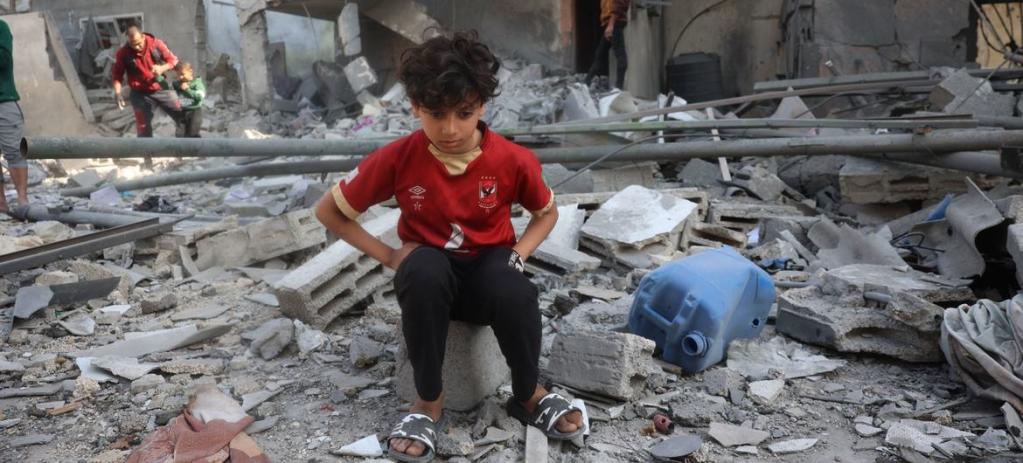
Press Release
07 July 2025
Israeli settlers, supported by the army, forcibly displaced Palestinian communities from the Jordan Valley in the occupied West Bank
Since 7 October 2023, the community has been gradually surrounded by new outposts and subjected to constant settler attacks. Following the establishment of another new outpost in the middle of the community, on 2 July this year, armed settlers from the nearby "Zohar outpost” stole approximately 60 sheep and harassed the Palestinian residents in their homes. Settlers occupied one of the homes, vandalized it, and forced the residents to leave. Later that night and the day after, the remaining 25 families of the community were also left with no choice but to leave after settlers seized their homes. The land now stands empty of Palestinians. Meanwhile, photos from the site show settlers and soldiers having already taken control of the land. The forcible displacement of this community follows dozens of others over the past months, forming part of a long-standing, state-sanctioned process through coordinated efforts by settlers, backed by the Israeli army, to empty parts of the occupied territory in the West Bank of Palestinians.In the south Hebron Hills, since January this year, Israeli settlers from the Carmel settlement, with the support of soldiers, have been encroaching on land belonging to the Palestinian community of Umm Al Khair. This encroachment — reportedly to establish a so-called “buffer zone” — has involved fencing off large areas of land and denying Palestinian residents access to pasture for livestock. On 29 June, an armed settler, again backed by Israeli soldiers, entered the community with his flock, seized a plot of land adjacent to a Palestinian home and declared it as his own. Since then, the same settler has harassed the community on a daily basis, attempting to enter their homes and intimidate residents.These incidents form part of the ongoing annexation of territory, forcible transfer of Palestinians, and the transfer of Israel’s own civilian population into the Occupied Palestinian Territory. Such forcible transfers amount to a war crime, and a crime against humanity if committed as part of a widespread or systematic attack directed against any civilian population, with knowledge of the attack.
1 of 5
Press Release
02 July 2025
Justice actors in Palestine sign MoU to ensure early legal representation for Juveniles
The MoU ensures that children are promptly informed of their right to legal counsel and psychological support and are accompanied by qualified legal professionals and child protection counsellors from their first contact with law enforcement. This commitment is aligned with Article 40 of the Convention on the Rights of the Child (CRC), which guarantees the right of every child alleged as, accused of, or recognized as having infringed the penal law to be informed promptly and directly of the charges, and to have legal or other appropriate assistance. It also reflects the guidance set out in CRC General Comment No. 10 (2007) on children’s rights in child justice, which emphasizes the importance of ensuring legal safeguards and psychosocial support from the earliest stages of contact with the justice system to uphold the child’s best interests and prevent secondary victimization.“Ensuring that every child has access to a lawyer from the very beginning of their interaction with the justice system is not only a legal safeguard, but also a moral imperative,” said Karin Limdal, Head of Mission, EUPOL COPPS. “This agreement sets a strong foundation for accountability and due process. It’s considered a big milestone toward implementing the right to early legal representation for all suspects in Palestine. EUPOL COPPS believes this fundamental right is essential for strengthening the justice system and upholding fair trial guarantees.”The agreement outlines the responsibilities of each institution to ensure that both legal and psychosocial support are available from the outset. It stipulates that children shall not be questioned or asked to provide a statement before the arrival of a lawyer, except in limited, urgent cases.Under the MoU, child protection counsellors from the Ministry of Social Development will be engaged during the early phases of legal procedures to provide psychosocial support and help guide children and their families through the process. The Palestinian Bar Association will ensure the timely assignment of legal representation, while the Public Prosecution will coordinate and oversee the implementation of the agreement.The agreement also outlines mechanisms for documentation, inter-agency coordination, and training of relevant professionals, helping to ensure consistent and rights-based practices across the justice and child protection sectors.Supported by EUPOL COPPS and the Sawasya III Joint Programme through UNICEF, the signing of this MoU marks a key milestone in justice reform efforts in Palestine. Grounded in national law and aligned with international human rights obligations, it aims to uphold the rights of the most vulnerable — children — from the outset of legal proceedings. “This agreement is a major step forward in reinforcing legal safeguards for children and ensuring that no child goes through the justice system alone. We affirm our strongest belief that children should be protected by restorative justice and alternative to detention mechanisms,” said Simon Ridley, the Sawasya Joint Programme Manager. “It reflects the collective commitment of national institutions to uphold the best interests of children and to guarantee their right to legal protection at all stages of the justice process.”
1 of 5
Press Release
30 June 2025
Gaza: Israel continues to kill entire displaced families in area it designated as “safe”
Since the ceasefire ended on 18 March 2025, the Israeli military has intensified its operations in Rafah and Khan Younis, forcing civilians into ever-shrinking spaces. Between 18 March and 16 June, the Israeli military issued 21 such displacement orders to Palestinians in Rafah, most parts of Khan Younis, and in some parts of southern Middle Gaza.Al Mawasi, located in western Khan Younis, covers approximately 8.9 square kilometers. It is almost completely empty lacking basic infrastructure, such as shelter, water and sewage systems, solid waste removal, latrines, and medical facilities. Despite this, the Israeli military had unilaterally designated the area as a “humanitarian zone” and refers to it in displacement orders as an area of “known shelters”. The Shelter Cluster, working under the UN Humanitarian Country Team, and its partners have repeatedly called for Israel to facilitate the access and entry of supplies to Gaza that are urgently required for the construction of shelters to meet the needs of the increasing number of civilians who are being forcibly displaced. Israel is obliged under international humanitarian law to ensure adequate and safe shelter for internally displaced people, as well as access to food, water, and medical care, until they can return to their homes. Regrettably, in the 21 months since the first orders instructing civilians to relocate, Israel has not made any efforts to comply with its obligations as the occupying power to provide proper accommodation to those relocating or to ensure that these removals are done in satisfactory conditions of health, hygiene, safety and nutrition. Since the end of the ceasefire on 18 March 2025, Al Mawasi has been full of displaced Palestinians. Following that, the increasing issuance of displacement orders has seen its population dramatically increase. According to OCHA, it has more than tripled, increasing from 115,000 on 13 March 2025 to 425,000 as of 19 June. Nearly all are living in makeshift tents assembled with very basic materials.Before the war, Gaza was already one of the most densely populated areas on Earth, with around 5,500 people per square kilometer. Today in Al Mawasi, there are more than 47,700 people per square kilometer.Despite instructing civilians to relocate to Al Mawasi, the Israeli military has continued to conduct intense military attacks on the area, notwithstanding the extremely high concentration of civilians per square kilometer. Many of these appear to target directly makeshift tents with deadly consequences for those inhabiting them. Between 18 March and 16 June 2025, the UN Human Rights Office in the Occupied Palestinian Territory recorded 112 attacks killing 380 people, including at least 158 women and children. Among the victims of these attacks, there were 64 cases where entire nuclear families (parents and their children) were killed.Among a number of such reports are the following:On 31 March, the Israeli military struck tents near the Applied Science College in Al Mawasi. We have verified the killings of 3 Palestinians from the Al Akkar family: a 24-year-old woman, a 66-year-old woman and a 3-year-old boy.On 25 March, the Israeli military struck a tent of the Abu Ta'imah family near Al Aqsa University in Al-Ard Al-Tayyiba camp, Al Mawasi. We have verified that 5 Palestinians were killed: a 33-year-old man, his 29-year-old pregnant wife and their 3 children (a 4-year-old boy, a 6-year-old boy and a 7-year-old girl). The Israeli military made no claim regarding the target of the strike, reflecting the pattern of strikes where no military objective is identified, and all those killed must be presumed civilians unless the Israeli military proves otherwise. On 19 May, at around 9 pm, the Israeli military struck a tent of the Kasab family in the vicinity of the Fish Fresh Junction, Al Mawasi. The UN Human Rights office has verified that 7 Palestinians were killed – a 34-year-old woman and 6 of her children (4 girls aged 5, 7, 10 and 13, and 2 boys aged 11 months and 11 years).The Israeli military has not publicly provided justification for any of the 112 attacks on tents recorded by our office. During the same period, the Israeli army did not issue any statements indicating it had targeted members of Palestinian armed groups or any military objectives in specific locations in Al Mawasi. Exceptionally, on 30 May, the Israeli military claimed to have killed “Khalil Abd al-Nasser Muhammad Khatib, a cell commander in Hamas' Al Mawasi battalion” without specifying the location where he was killed. However, despite having information about three incidents that took place in the Al Mawasi area on 30 May, we have not been able to verify that Khalil Khatib was among those killed. Furthermore, the office could not identify any legitimate military objectives in the vicinity where these attacks took place.Such attacks, resulting in the killing of hundreds of Palestinians, raise serious concerns about the intentional targeting of civilians in violation of international humanitarian law. They also starkly demonstrate that nowhere is safe in Gaza, including the Israeli-designated so-called “humanitarian zones”.
1 of 5
Press Release
26 June 2025
Palestinians subjected to increased forced displacement and land grabs in the occupied West Bank, including East Jerusalem
On 18 June, the High Planning Council in the Israeli Civil Administration issued a directive to reject all building and planning permits submitted by Palestinians in Masafer Yatta, South Hebron Hills, in the area referred by the Israeli authorities as Firing Zone 918, on the grounds the Israeli army needs the area for “military training”. In the 1980s, Israeli authorities designated Masafer Yatta, along with other parts of the occupied West Bank, as Israeli “Firing Zones” — one of the tools used by Israel, the occupying power, to confiscate Palestinian land and expand settlements, in violation of international law.Over the past months, Israel has dramatically ramped up home demolitions, as well as the arbitrary arrest and ill-treatment of Palestinians and human rights defenders, alongside intensifying movement restrictions in and around Masafer Yatta, to force Palestinians out. In parallel, Israeli settlers from nearby outposts — built within the same “Firing Zone” but not subjected to eviction — have conducted daily attacks and harassment of Palestinians, including older people, women and children, in order to force them to leave. The recent directive by the Israeli Civil Administration effectively paves the way for the Israeli army to demolish existing structures in the area and expel the approximately 1,200 Palestinians, who have been living there for decades. This would amount to forcible transfer, which is a war crime. It could also amount to a crime against humanity if committed as part of a widespread or systematic attack directed against any civilian population, with knowledge of the attack.Since 7 October 2023 and as of 31 May 2025, 6,463 Palestinians have been forcibly displaced following the demolition of their homes by Israel according to OCHA; a figure which does not include the approximately 40,000 Palestinians displaced from three refugee camps in Jenin and Tulkarem as a result of heavily militarised Israeli operations in northern West Bank since January 2025. During the same period, over 2,200 Palestinians were forcibly displaced by settler attacks and access restrictions.Countless other Palestinian communities are facing the same fate of forced displacement. On 10 June 2025, the Jerusalem municipality reportedly issued demolition notices for the entire village of An Nu’man, which is home to 150 Palestinians. The village, located near Bethlehem, was cut off from the rest of the West Bank by the construction of the Wall and incorporated into Israel’s unilaterally declared boundaries of the Jerusalem municipality. Most of its Palestinian inhabitants were not provided with Jerusalem IDs, effectively rendering them unable to access services in either East Jerusalem or the rest of the West Bank. These demolition notices appear to be another step by Israel to compound the coercive environment and forcibly transfer Palestinians from the village and consolidate the annexation of this land.Palestinians in occupied East Jerusalem also face the ongoing threat of forced eviction from their homes and lands. On 16 and 22 June, the Israeli Supreme Court endorsed the eviction of five Palestinian families — comprising 37 individuals — from their homes in the Batn El Hawa neighbourhood of Silwan. The rulings were based on discriminatory laws that permit Jewish individuals to reclaim property lost in the 1948 war, while denying Palestinians the same rights. In addition, on 11 June the Israel Land Authority issued eviction notices for residencies in Umm Tuba, impacting 150 Palestinians, who were informed that the land was registered to the Jewish National Fund under the “settlement of land title”. These evictions form part of a concerted campaign by the Israeli State and settler organisations, which target Palestinian neighbourhoods to seize Palestinian homes and expand Jewish settlements. Such acts violate international law, which prohibits the confiscation of private property in occupied territory and the annexation of such territory, as highlighted by the Advisory Opinion of the International Court of Justice last July.
1 of 5
Press Release
02 June 2025
Gaza: Israeli Military Kills 32 Palestinians Seeking Food Aid as 'Militarised Humanitarian Mechanism' Deepens Crisis
In the early morning of 1 June, the Israeli military reportedly shot at Palestinians trying to reach the aid distribution points in northwestern Rafah. According to the Gaza Ministry of Health, there were over 200 Palestinian casualties, including 31 killed and dozens seriously injured. Around the same time, in a similar incident close to another distribution point south of the Netzarim corridor in Middle Gaza, at least 1 person was shot and killed, and 42 were injured. While more information is being gathered, in both locations, the casualties reportedly include children and women.The killings today follow numerous reports of the lethal use of firearms against Palestinians approaching GHF distribution points in Rafah and Middle Gaza since this new mechanism was established late last month. Between 27 and 31 May, the UN Human Rights Office in the Occupied Palestinian Territory (OPT) had already recorded daily violence connected with the mechanism, including reports of at least 19 Palestinians killed and 80 injured in total. At least 2 Palestinians were reportedly missing.The UN Human Rights Office OPT stresses once more that Israel’s militarised humanitarian assistance mechanism violates international standards on aid distribution, endangers civilians, and is contributing to the catastrophic situation in Gaza. The 20 months of hostilities, Israel’s destruction of civilian infrastructure across Gaza, the almost 3 months of complete siege and blockade of Gaza, attacks on community kitchens, as well as the unlawful targeting of civilians including the police force, have led to a break down in civil order and is forcing on Palestinians the stark choice of dying from starvation or risk being killed while trying to access the meagre food that is being made available through the GHF.The weaponisation of food for civilians and restricting or preventing their access to other life-sustaining services constitute a war crime and may constitute elements of other international crimes, including genocide.Israel, as the occupying power, has the duty, to the fullest extent of the means available to it, to ensure the provision of food and medical care for the population commensurate with their needs. They have further obligations to facilitate access by international humanitarian service providers and to facilitate the access of the civilian population to that assistance. The Office recalls that in 2024 the International Court of Justice, having found that there was a real and imminent risk of irreparable prejudice to the plausible rights of Palestinians in Gaza under the Genocide Convention, issued binding orders on Israel to take all measures to ensure, without delay, and in cooperation with the UN, the unhindered provision at scale of aid and assistance to Gaza.As a matter of urgency, Israel must immediately comply if further unnecessary deaths of Palestinian civilians are to be prevented.
1 of 5
Latest Resources
1 / 11
Resources
05 December 2024
Resources
16 January 2024
1 / 11


















